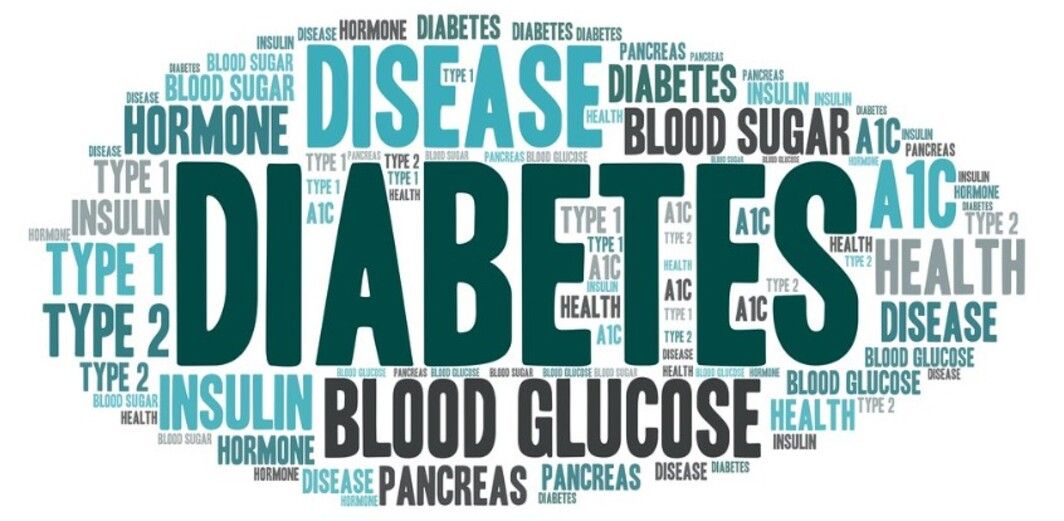Diabetes Management
Understanding the Different Types of Diabetes
2 min read
By Apollo 24|7, Published on - 17 May 2024
Share this article
0
0 like
.jpg?tr=q-80)
Diabetes is a long-term health condition that affects the body's ability to handle blood glucose. There are a number of diabetes types, each with its distinct causes and management techniques. In this blog post, we aim to shed light on these different types and their unique characteristics.
The Three Main Types of Diabetes
Firstly, type 1 diabetes is an autoimmune condition where the body mistakenly attacks insulin-producing cells in the pancreas. Mostly diagnosed in children and young adults, this condition calls for daily insulin injections as a part of its management.
Secondly, type 2 diabetes starts with insulin resistance, which means that your body cells can't effectively utilise insulin. This inefficiency results in high blood sugar levels and over time may lead the pancreas to produce inadequate insulin to combat this resistance. Factors such as genetics, a sedentary lifestyle, and obesity, among others, increase the risk of acquiring type 2 diabetes.
Lastly, gestational diabetes surfaces during pregnancy due to hormones that block insulin. While it usually resolves post-childbirth, it does increase the risk of developing type 2 diabetes later. It's more prevalent in individuals with pre-existing prediabetes and those with a family history of diabetes.
Why Understanding the Differences Matters
The types of diabetes vary significantly in their onset, causes, and management strategies. Gaining a better understanding of these distinctions enables more effective treatment and care. For instance, managing type 1 diabetes typically involves taking insulin for life, while managing type 2 can often be aided by a healthy lifestyle change.
Rare Cases: Other Types of Diabetes
There are other rare forms of diabetes such as monogenic diabetes, including Maturity-Onset Diabetes of the Young (MODY) and Neonatal Diabetes Mellitus (NDM). Another rare kind is secondary diabetes which is generally triggered by another medical condition like cystic fibrosis.
Living with diabetes doesn't mean giving up on a fun life. With careful lifestyle management and a positive mindset, you can lead a fulfilling life while keeping your diabetes in check. It's about taking charge and making conscious choices that contribute to your well-being, such as consuming a healthy diet, regularly engaging in physical activity, and efficiently monitoring your blood sugar levels.
Diabetes Management
Consult Top Diabetologists
View AllLeave Comment
Recommended for you

Diabetes Management
Diabetes Crisis in India: Regional Insights
Alarming: 101 million Indians grapple with diabetes. Prediabetes affects 136 million of the urban population. Top 10 worst-affected states include Goa - 26.4%, Puducherry - 26.3%, Kerala - 25.5%, Chandigarh - 20.4%, Delhi - 17.8%, Tamil Nadu - 14.4%, West Bengal - 13.7%, Sikkim - 12.8%, Punjab - 12.7%, Haryana - 12.4 Based on the Lancet study, Diabetes rates are higher in southern and northern India, but lower in central and northeastern regions.

Diabetes Management
Can Diabetes Cause Hormonal Imbalance?
Diabetes disrupts hormone balance, affecting blood sugar regulation and stress, sex, and thyroid hormones. Consistent monitoring, medication, balanced diet, exercise, and stress management are vital to managing these imbalances. Understanding this link is crucial for improving overall well-being and diabetes control.

Diabetes Management
Is it Safe for Diabetics to Donate Blood?
Yes, it is generally safe for individuals with diabetes to donate blood as long as their condition is well-managed and they meet the required health criteria. People with both type 1 and type 2 diabetes may be eligible, depending on factors such as overall health and medication use. Diabetic donors need to monitor their blood sugar levels, stay hydrated, and have snacks on hand to stabilise blood sugar. Effective communication with the donation centre staff and making them well aware of your condition is crucial for a safe donation process.
Subscribe
Sign up for our free Health Library Daily Newsletter
Get doctor-approved health tips, news, and more.
Visual Stories

8 Fruits That are Incredibly Healthy for Diabetes
Tap to continue exploring
Recommended for you

Diabetes Management
Diabetes Crisis in India: Regional Insights
Alarming: 101 million Indians grapple with diabetes. Prediabetes affects 136 million of the urban population. Top 10 worst-affected states include Goa - 26.4%, Puducherry - 26.3%, Kerala - 25.5%, Chandigarh - 20.4%, Delhi - 17.8%, Tamil Nadu - 14.4%, West Bengal - 13.7%, Sikkim - 12.8%, Punjab - 12.7%, Haryana - 12.4 Based on the Lancet study, Diabetes rates are higher in southern and northern India, but lower in central and northeastern regions.

Diabetes Management
Can Diabetes Cause Hormonal Imbalance?
Diabetes disrupts hormone balance, affecting blood sugar regulation and stress, sex, and thyroid hormones. Consistent monitoring, medication, balanced diet, exercise, and stress management are vital to managing these imbalances. Understanding this link is crucial for improving overall well-being and diabetes control.

Diabetes Management
Is it Safe for Diabetics to Donate Blood?
Yes, it is generally safe for individuals with diabetes to donate blood as long as their condition is well-managed and they meet the required health criteria. People with both type 1 and type 2 diabetes may be eligible, depending on factors such as overall health and medication use. Diabetic donors need to monitor their blood sugar levels, stay hydrated, and have snacks on hand to stabilise blood sugar. Effective communication with the donation centre staff and making them well aware of your condition is crucial for a safe donation process.

